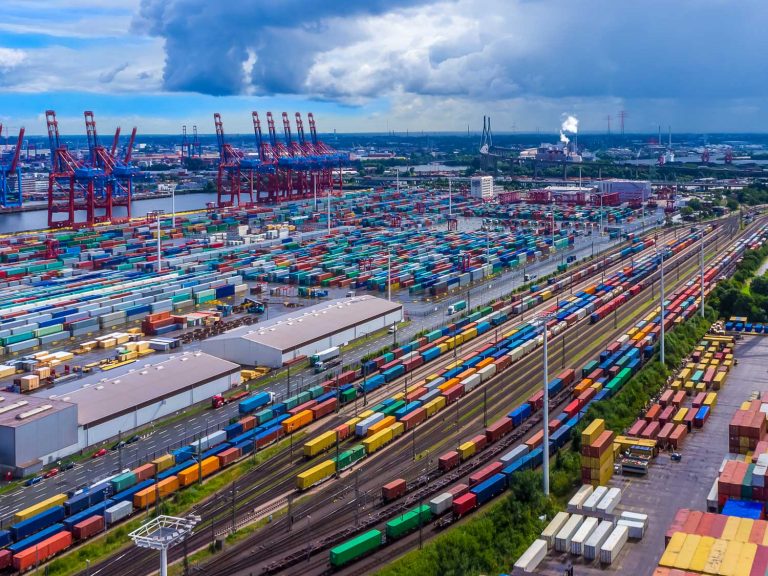
Date:
New China rail services added
Supply chains between Europe and China continue to face significant pandemic-related disruption, leading to an upsurge in interest for rail freight solutions from the region. Reacting to expanding demand, we are increasing our rail freight coverage, to embrace all major China sourcing regions.
The increased load factors (number of containers) on each arriving vessel is creating spikes in demand, which are increasingly overwhelming the ports’ capability to handle the vessel discharge and container movements to release.
While the inbound volumes are considerable, the primary issue is the reduction in operating capacity, as essential working practises must adhere to social-distancing and “Covid 19” cleansing routines.
Container ports operate 24/7, but at the end of every shift equipment and all common areas must be removed from service for extended periods for a deep-clean, which immediately diminishes the port’s capacity and operational working time.
A typical example would be between 0500-0700hrs, where no activity occurs.
In reality for road operations (VBS-Vehicle booking Slot), these are reduced the hour prior to allow terminal operations to reduce and after shift change to recommence.
If a vehicle is on the quay before the cleaning period, there is no guarantee that it would be handled before.
This has led to greater pressure on the availability of booking slots at peak periods and vehicle delays, which may be longer than the transit time to delivery point.
This is against the background of a container haulage industry, which has struggled throughout with a number of casualties.
Hauliers are working to redeploy furloughed drivers and review fleet operations, to meet these challenges, but at the same time they have to address the additional costs that the restricted operations at ports and inland DC’s are creating.
The fluctuating volumes and spikes, combined with a notable reduction in PM work, means that port capability can only be defined cautiously, as we head into Q4 with limited flexibility and much uncertainty.
The restricted operations that the ports are labouring under, are adding to the demands faced by haulage operators and will quickly exceed capacity resulting in delays, making recovery even more challenging.
Metro continue to work closely with our haulage and intermodal partners, to minimise any negative impacts on our customers and while we have seen limited effect to date, we will maintain our maximum efforts, to safeguard your supply chain from this deteriorating situation.
